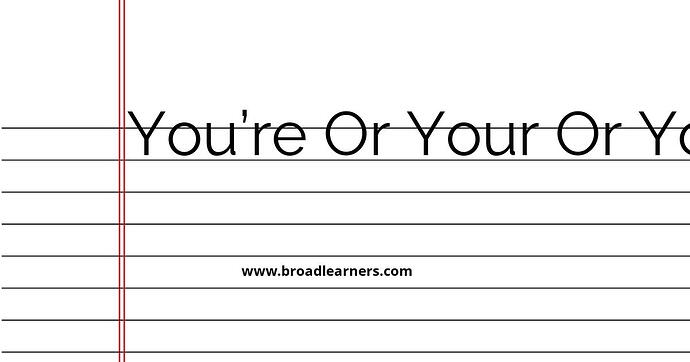'You're', 'your', and 'you're' are commonly confused words in English grammar. Understanding the difference between 'you're', 'your', and 'you're' is important to use them correctly in written and spoken English.
'You're' is a contraction of 'you are'. It is used to indicate that someone is, exists, or behaves in a particular way.
'Your' is a possessive adjective that indicates ownership or belonging. It is used to show that something belongs to the person being spoken to or addressed.
Let's take a closer look at the meanings and usage of 'you're', 'your', and 'you're'.
| 'You're' | 'Your' | 'You're' |
|---|---|---|
| The word 'you're' is a contraction of 'you are'. | The word 'your' is a possessive adjective. | The word 'you're' is a contraction of 'you are'. |
|
|
|
To remember the difference between 'you're', 'your', and 'you're', it can be helpful to remember that 'you're' is a contraction of 'you are', 'your' is a possessive adjective, and 'you're' is a contraction of 'you are'.
Here are some examples of correct usage:
- You're my best friend. (indicating someone's relationship)
- What's your favorite color? (asking about someone's preference)
- I hope you're enjoying your vacation. (referring to someone's current state)
- Did you know you're invited to the party? (informing someone about their invitation)
Remembering the correct usage of 'you're', 'your', and 'you're' will improve your grammar and communication skills.
